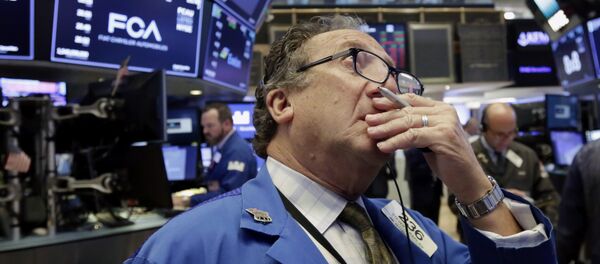Sputnik: Asian markets have rebounded after concerns over an economic slowdown in China. What has shaken off these concerns?
Nafis Alam: In fact, it was a one off event, you can say. The situation will continue to hang on until the trade negotiations continue for the next 90 days. In fact, they've brought down much of concern with trade negotiations. The high-level meetings are going on in the last week and leaders are expected to meet again next week in Washington to discuss the bilateral issue. So the markets are not taking this trade war as a really serious matter. Definitely there is some slowdown in the Chinese economy, which is not only due to the trade war concerns but also happening with the slump in their own economy and also the spin-over effect coming from the One Belt, One Road Initiative. Because as you can see that in the market many are now renegotiating the deal within the One Belt, One Road. For example, like Pakistan is also having the investment renegotiated, Malaysia has cancelled some of the investment from China. So this is giving an overall impact on the Chinese economy; and it has less to do with the trade war rather than to do with the internal structure of the Chinese economy itself.
READ MORE: US Senators Introduce Bill Targeting US Export to China's Telecom Industry
Sputnik: How much is the US-China trade war factored in here?
Nafis Alam: There is a concern among investors, definitely. In fact, if you have read the news earlier about the drop in China's exports but overall if you see the trade balance, which has increased over the period, I don't think China has much to lose. Because, again, there is a win-win situation for both countries and that's why they're negotiating the trade deal before the actual tariff comes into place in the next 90 days. There is concern but it's not going to be much of effect given that the leaders are renegotiating the deals and they are meeting in the New Year. Last week was in China and again next week will be in Washington. So these are positive developments happening over that and that's going to give a more positive mood to the market.
Nafis Alam: If you really look at the to the Asian market it is having a double impact due to the strong economic growth in the US economy and the rise in the value of the dollar, which is affecting the emerging market economies especially in the Asian region and that's why the economies are plunging and there are some internal issues as well. There's slowdown in the housing market in Singapore, in the housing market in Hong Kong and that is also having an impact on the overall region. So it's not only to do with China and US trade war but also to look into the overall economic sentiment in the region.
READ MORE: US Trade Deficit with China Surged to $323 Billion Last Year
Sputnik: Professor, experts worry about a deeper slowdown in global growth, what is the likelihood of this happening?
Nafis Alam: (With) A global concern about the overall economic slowdown, a lot of factors are factoring in; the geopolitical events between China and the US, at the same time Brexit is also going to come into effect in March, the student debt is at a very high-level in the US market. So there are concerns, and the emerging markets also are not doing too good. So as I predicted earlier as well, there will be a recession in the market as early as the last quarter of 2019 or as late as the first quarter of 2020. So there is a concern which is building up and markets may see a drop in investment and in returns.
The views and opinions expressed by the speaker do not necessarily reflect those of Sputnik.




